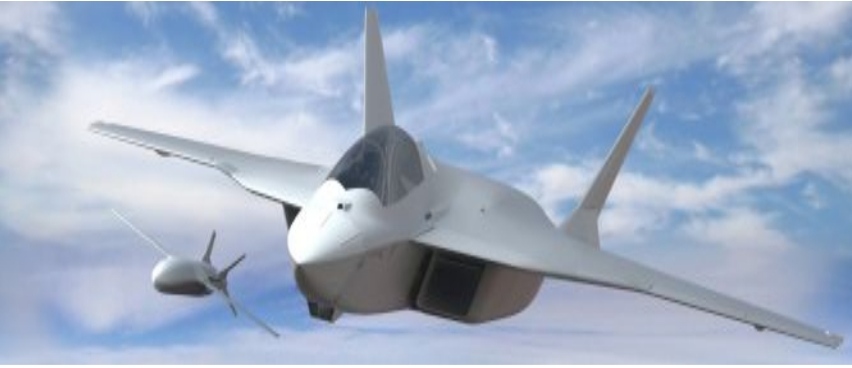France, Germany And Spain Strike Deal Over Next Generation Joint Fighter Jet

France, Germany and Spain said that they had reached a deal over the next steps of the development of a new fighter jet, Europe’s largest defence project at an estimated cost of more than 100 billion euros ($121.4 billion).
The next development phase for the Future Combat Air System (FCAS) is expected to cost 3.5 billion euros ($4.25 billion), to be shared equally by the three countries. The sum will cover finalisation of the designs of both the combat jet and drone by 2024 and the building of demonstrators for both, a French defence ministry source said.
France in particular has billed the combat jet project — which includes a next-generation manned and unmanned aircraft — as crucial for Europe to strengthen its defence autonomy and face competition from China, Russia and the United States.
“France, Germany and Spain are building one of the most important tools for their sovereignty and that of Europe in the 21st century,” French Armed Forces Minister Florence Parly tweeted.
France’s Dassault Aviation, Airbus and Indra – the latter two representing Germany and Spain respectively – are involved in the scheme to start replacing French Rafale and German and Spanish Eurofighters from 2040. Though by that time, India too should be replacing the SUKHOI MKI 3s with its own designed Advanced Heavy Combat Aircrafts. Even the Americans will have a replacement for their problematic F22. Russians will probably have a SU 67 and a MIG 45 and the Chinese …..?
France and Germany had originally set the end of April for a deal, but a dispute over how to share intellectual property rights held up negotiations.
Under the terms of the agreement, the fighter jet will not have a black box to help preserve sensitive commercial know-how, the French defence source said.
However, even with a deal between the governments and aerospace companies, time is short for Berlin to secure the approval of Germany’s powerful parliamentary budget committee ahead of September’s federal election.
Approval is needed before funds can be spent and the process can take months.



